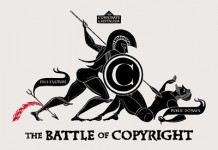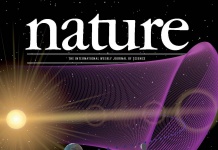 The struggle between scientific publishers and the academic community over open access policies has taken a new and striking turn. Not only is the Nature Publishing Group, publisher of Nature, Scientific American, and other august and popular journals, attempting to induce authors who sign with it to obtain waivers on the open access policies of their schools and institutions, it is also slipping waivers on authors’ moral rights into its contracts. And just to clarify, moral rights “include the right of attribution, the right to have a work published anonymously or pseudonymously, and the right to the integrity of the work.”
The struggle between scientific publishers and the academic community over open access policies has taken a new and striking turn. Not only is the Nature Publishing Group, publisher of Nature, Scientific American, and other august and popular journals, attempting to induce authors who sign with it to obtain waivers on the open access policies of their schools and institutions, it is also slipping waivers on authors’ moral rights into its contracts. And just to clarify, moral rights “include the right of attribution, the right to have a work published anonymously or pseudonymously, and the right to the integrity of the work.”
All this is detailed in the blog “Scholarly Communications @ Duke: Duke’s source for advice and information about copyright and publication issues,” authored by Kevin J. Smith, Duke University’s first Scholarly Communications Officer – so hardly some off-the-wall Occupy-style anti-Big Media crusader. Smith describes NPG’s push to get Duke authors to waive open access provisions as follows: “We have had that policy in place for over three years, but for the first time a single publisher — the Nature Publishing Group — is telling all authors at Duke that they must obtain a waiver of the policy before their accepted articles can be published … The demand seems to be an effort to punish authors at institutions that adopt open access policies.”
The moral rights waiver is a different matter. Smith highlights clause 7 of the NPG “license”:
The Author(s) hereby waive or agree not to assert (where such waiver is not
possible at law) any and all moral rights they may now or in the future hold
in connection with the Contribution and the Supplementary Information.
Bear in mind that moral rights are recognized in copyright law in the UK and many other jurisdictions, but not under U.S. copyright law. In many countries, they are even considered inalienable, and not subject to voluntary relinquishment. And, as Smith adds, “the clause is carefully structured to attempt to get authors even from the countries that do not allow the waiver of moral rights — they are considered that important — still to promise not to assert those rights (whether or not that would be enforceable in those countries).”
So, if you are a researcher who wants to be published in Nature, as many undoubtedly do, you have to take a chance that NPG will repackage your work and publish it without attribution, without concern for its internal integrity. This essentially makes the retention of author copyright under the NPG license meaningless, as Smith points out, because the same content can simply be reshaped and reissued without attribution.
“I also must warn authors that by signing the NPG license they are giving up the most precious thing they have — the right to get credit for their work,” Smith concludes.


































Sacrificing integrity for publication and diminishing the cause of Open Access in the process, makes those who sign such waivers collaborators of the worst kind. The so called elite journals have had it far too good for too long! No one seems to have the guts to call them out for shoddy editorial practices and the often profoundly dishonest conflicts of interest that see flaws and errors being missed with monotonous regularity. This unprincipled attempt to punish Open Access supporters will hopefully convince more of us to cease supporting the old school dinosaurs!